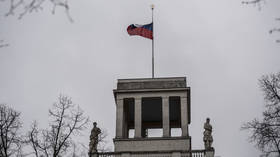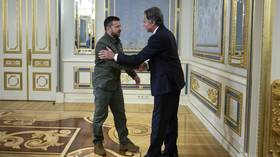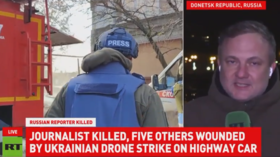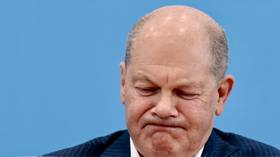Message about ‘severing ties’ with Russia retracted
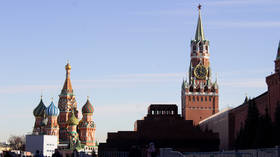
Montenegro’s foreign ministry has retracted a tweet where it spoke about severing diplomatic ties with Russia. Podgorica said it had been posted by mistake.
On Tuesday night, a list of measures that “state institutions are obliged” to implement against Russia was posted on the official Twitter account of the small Balkan state's foreign ministry. Topping the extensive inventory was the “termination of diplomatic relations.” The severing of ties and other less radical measures were brought up in connection to Russia’s military offensive against Ukraine, which the country has condemned.
However, a few hours later, Montenegrin officials removed the tweet, posting an apology to the public “for the gross omission in the previously published statement, where instead of listing the restrictive measures, it was erroneously stated that they came into force.” As per the explanation, the severing of diplomatic ties and other steps were actually mentioned merely as potential responses to Russia’s actions which Montenegro could resort to under its law. The original Twitter post had apparently taken the list out of context, so it ended up looking like Podgorica was implementing all of those already.
The tweet in question, however, was up long enough for Russia’s embassy in Montenegro to notice it, and demand an official clarification from the country’s foreign ministry. Citing unnamed Russian diplomats, RIA Novosti reported that Moscow had “demanded an explanation from Montenegro’s foreign ministry in connection with a Twitter post mentioning the severing of diplomatic relations.”
Following a meeting with a coordination committee tasked with implementing restrictive measures against Russia on Monday, Montenegrin Foreign Minister Dorde Radulovic described Russia’s military campaign against Ukraine as a “watershed, which has shaken the structure of European security.” The diplomat also emphasized Montenegro’s resolve to join the EU, urging Brussels to make a decision on the country’s accession.
Political forces in Podgorica advocating sanctions against Moscow initially failed to enact those amid internal opposition; however, on April 8, Montenegro did impose a batch of punitive measures against Russia. Several Russian diplomats were also expelled from the country in March and April, with the Balkan nation also closing its air space to Russian planes last month.
In response, Russia declared a Montenegrin diplomat persona non grata on March 24.
Since February 24, when Moscow launched its military campaign against Ukraine, the US, Canada, the UK, the whole of the EU, Japan, Australia and several other nations have imposed sweeping economic sanctions against Russia. The punitive measures target, among other things, the country’s central bank’s assets, a number of major commercial banks, entire industries, as well as individual businessmen and top officials.
Russia attacked its neighboring state in late February, following Ukraine’s failure to implement the terms of the Minsk agreements, first signed in 2014, and Moscow’s eventual recognition of the Donbass republics of Donetsk and Lugansk. The German- and French-brokered protocols were designed to give the breakaway regions special status within the Ukrainian state. The Kremlin has since demanded that Ukraine officially declare itself a neutral country that will never join the US-led NATO military bloc. Kiev insists the Russian offensive was completely unprovoked and has denied claims it was planning to retake the two republics by force.
